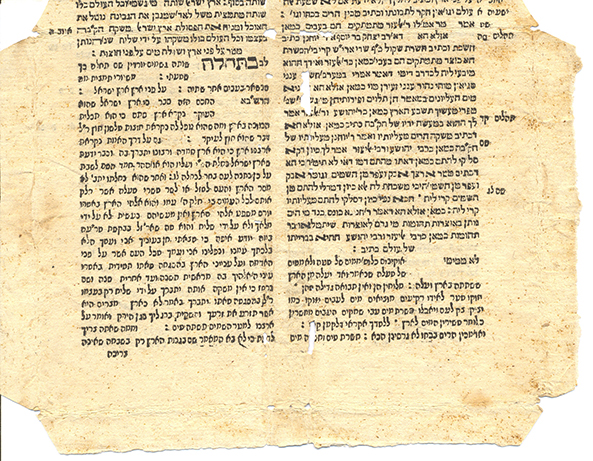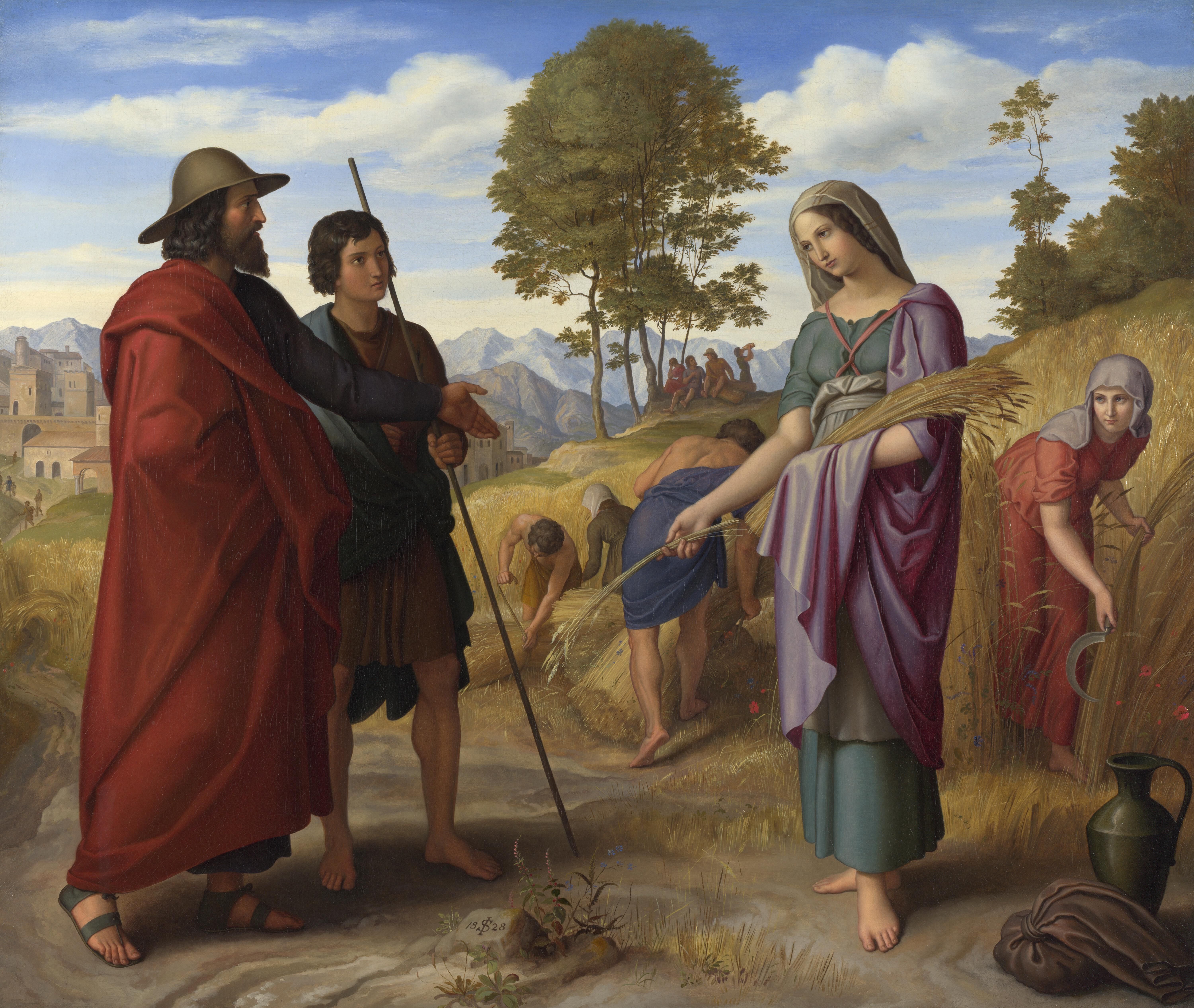
by: Rev. Cheryl L. Hauer, International Vice President
As much as we wish it were not so, there is much in our lives today that is simply not good. Natural disasters, deadly pandemics, drug addiction, abortion and child abuse, to name just a few, are atrocities that plague our modern world. Perhaps that is why some consider Romans 8:28 to be the most quoted verse in the Bible: “And we know that in all things God works for the good of those who love Him, who have been called according to His purpose” (NIV). The promise of good in the face of evil brings a hope where often, without this assurance from God, there is no hope at all.
Sometimes, however, reconciling what is happening in our lives with the beauty of that promise can be challenging. We have all experienced a prayer that seemed to go unanswered, a healing that did not come or a dream left behind as the path of life took a new direction. For some, that seeming contradiction can lead to disappointment and even anger at God who didn’t keep His promise—or maybe He did. Maybe the contradiction exists because we don’t really understand the promise.
The best way to gain that understanding is to put the verse in its proper context. The apostle Paul wrote Romans to the church in Rome to introduce himself prior to his upcoming first visit. He clearly wanted the Romans to understand his positions on faith, grace, salvation and the indwelling of the Holy Spirit before he arrived, hopefully building support among the believers and unifying a seriously divided church. Much of the book—and particularly chapter 8—is filled with contradiction as Paul juxtaposes a life of the selfish pursuits of the flesh with one focused on walking in accordance with the righteousness of God. The letter was written in the late 40s to early 50s AD, a time when persecution of both Jews and Christians was taking hold in Rome under Emperor Nero.
Although Paul speaks at length of the struggle between the flesh and the spirit and the carnal mind versus the life-giving spiritual mind, he reminds the Romans that as believers they are indwelt by the same Spirit who raised Jesus (Yeshua) from the dead, a powerful partner in their struggles with temptation. However, in verse 18, he says, “For I consider that the sufferings of this present time are not worthy to be compared with the glory which shall be revealed in us,” an allusion I believe to a struggle beyond their own personal battle with sin to the terror of Roman persecution. Nero was known to affix Christians and Jews to poles in his garden, drench them in tar and set them afire to provide light for his evening strolls.
 It is in this context that Paul makes his declaration in verse 28, “And we know…” no uncertainty here, no guesswork required, “that in all things God works…” not some things, or just the things we can understand or in which we see benefit, “for the good of those who love Him, who have been called according to His purpose…” (NIV, emphasis added). And what is that purpose? Verse 29 tells us: “For whom He foreknew, He also predestined to be conformed to the image of His Son, that He might be the firstborn among many brethren” (emphasis added).
It is in this context that Paul makes his declaration in verse 28, “And we know…” no uncertainty here, no guesswork required, “that in all things God works…” not some things, or just the things we can understand or in which we see benefit, “for the good of those who love Him, who have been called according to His purpose…” (NIV, emphasis added). And what is that purpose? Verse 29 tells us: “For whom He foreknew, He also predestined to be conformed to the image of His Son, that He might be the firstborn among many brethren” (emphasis added).
It is not unusual to hear the testimony of believers for whom this promise has become reality. When dealing with some difficult condition with family or in the workplace, they were filled with dread and were certain that no good lay in store for them, when suddenly God moved and the situation was miraculously turned for their benefit. God loves us passionately and often keeps this promise on a very intimate and micro level. But His purpose, the good that He promises, does not mean we will always acquire what we want or desire. Rather, we can know beyond a shadow of a doubt that through all our circumstances, the will of God will be accomplished, His plans will not be thwarted and we will be transformed into His very image through our suffering and our heart’s desires changed to align with His. There is no greater good than that.
 The concept of the suffering of the righteous has for millennia been a topic of discussion among the rabbinic sages of Israel as it has in the Christian community. The question of why evil befalls God’s people is a difficult one to answer, and the Talmud (rabbinic commentary on Jewish tradition and the Hebrew Scriptures) records a wide variety of suggested reasons. Recognizing that God allows suffering and difficult circumstances that are not punitive or the result of sin but rather for the purpose of bringing blessing to the individual and often greater good to the community, they have deemed such actions on God’s part “the sufferings of love”— those difficult circumstances God uses to transform His people into His image.
The concept of the suffering of the righteous has for millennia been a topic of discussion among the rabbinic sages of Israel as it has in the Christian community. The question of why evil befalls God’s people is a difficult one to answer, and the Talmud (rabbinic commentary on Jewish tradition and the Hebrew Scriptures) records a wide variety of suggested reasons. Recognizing that God allows suffering and difficult circumstances that are not punitive or the result of sin but rather for the purpose of bringing blessing to the individual and often greater good to the community, they have deemed such actions on God’s part “the sufferings of love”— those difficult circumstances God uses to transform His people into His image.
Famous rabbi and Jewish sage Rashi (1040–1105), in discussing the concept of “sufferings of love,” comments: “The Holy One, blessed be He, chastises him in this world, though he is guiltless of any sin, for the purpose of increasing his reward in the World to Come to a degree greater than his merits would otherwise have deserved.”
The Talmud contains many stories of the “sufferings of love,” one of which concerns Rav Huna, a third century teacher who had a very prosperous vineyard. However, for no apparent reason, 400 flasks of his best wine suddenly turned sour at great financial loss for the vineyard and deprivation for the rabbi and his family. Scholars and friends encouraged him to look inside himself and repent of the sin that he must have committed to bring such a judgment upon himself. Finally, Rav Huna did in fact confess that he had been dishonest in his business, repenting with great sorrow, at which time the sour wine immediately became fresh again. Another telling says the wine stayed sour, but God caused the price of vinegar to soar, blessing Rav Huna with even more than the wine would have been worth! Either way, the “sufferings of love,” the rabbis say, were at work here. God was not punishing Rav Huna, but drawing him with cords of kindness to a change of heart.
Job and Joseph are two examples that are often used in discussions of this nature. Both men were innocent and godly, and yet both were victims of untold suffering. In Job’s case, he lost everything, including his children, only to have his wealth restored and the blessing of a new family given to him after a remarkable encounter with God Himself. Clearly, the Lord worked all of Job’s suffering together for his good on that micro level, giving him a new and deeper understanding of God’s sovereign love.
Joseph’s story is a bit different. As a young man dearly loved by his father, living a somewhat idyllic life in the hills around Hebron, his suffering was immense. Betrayed by his brothers, torn from his father, sold into slavery and dragged from his beloved homeland to foreign soil and an unknown people, it is hard to imagine how he was able to bear the pain and fear that must have tried to overtake him. On a micro level, God certainly used that suffering for Joseph’s good, placing him as second in command over all of Egypt and blessing him with a family of his own. The miraculous was Joseph’s constant companion in Egypt, an ever-present reminder of the faithfulness of God.
But Joseph’s suffering would also be worked together for good on the macro level: the future of the Jewish people and the path that they were ordained to follow to fulfill their destiny. Yes, his brothers’ actions were meant for evil, but God worked them together for the good of all of mankind (Gen. 50:20).
 Another such example is found in Exodus 2:1–2 and Hebrews 11:23. It is the story of Jochebed, Moses’s mother. History reveals that she was of the tribe of Levi, as was her husband, Amram. Jewish tradition tells us that Jochebed and Amram were familiar with the prophecies that God had given Abraham and knew that the time of their slavery was soon to come to an end. They had strong faith in God and did not fear the edicts of Pharaoh, believing that God would have them give birth to a son. However, both Exodus and Hebrews remark on Moses’s beauty. The word in Hebrew means physical beauty but includes an inherent strength, goodness and pleasantness. Surrendering him to the waters of the Nile was pain that Jochebed could scarcely bear. Her circumstances could easily have overwhelmed her: a female slave with no rights or privileges at the mercy of slave-masters who would have killed her son in an instant. Moreover, in holding Moses, feeding him and loving him for three months, a bond was formed that made surrendering him to an unknown future almost unbearable. Such is pain that perhaps only another mother could understand. Yet God worked the situation for her good on that micro level, bringing her baby back into her home and her life for several years as she nursed him, loved him and taught him the ways of God. And like Joseph, those circumstances would also be worked together for the greater good of the people of Israel, giving rise to the Exodus from Egypt, one of the most important events in all of human history.
Another such example is found in Exodus 2:1–2 and Hebrews 11:23. It is the story of Jochebed, Moses’s mother. History reveals that she was of the tribe of Levi, as was her husband, Amram. Jewish tradition tells us that Jochebed and Amram were familiar with the prophecies that God had given Abraham and knew that the time of their slavery was soon to come to an end. They had strong faith in God and did not fear the edicts of Pharaoh, believing that God would have them give birth to a son. However, both Exodus and Hebrews remark on Moses’s beauty. The word in Hebrew means physical beauty but includes an inherent strength, goodness and pleasantness. Surrendering him to the waters of the Nile was pain that Jochebed could scarcely bear. Her circumstances could easily have overwhelmed her: a female slave with no rights or privileges at the mercy of slave-masters who would have killed her son in an instant. Moreover, in holding Moses, feeding him and loving him for three months, a bond was formed that made surrendering him to an unknown future almost unbearable. Such is pain that perhaps only another mother could understand. Yet God worked the situation for her good on that micro level, bringing her baby back into her home and her life for several years as she nursed him, loved him and taught him the ways of God. And like Joseph, those circumstances would also be worked together for the greater good of the people of Israel, giving rise to the Exodus from Egypt, one of the most important events in all of human history.
 Finally, we find our last example in the book of Ruth. Naomi, wife of Elimelech, had lived a life of relative ease and wealth in Bethlehem, but famine came and her husband made the decision to leave all behind and travel to Moab, the land of Israel’s fiercest and most hated enemies. What pain she must have experienced. Once there, her sons married Moabite women even though the Torah (Gen.–Deut.) prohibited such unions. Finally, her husband and both sons died, and Naomi returned to Bethlehem, humiliated and discouraged. But the hand of God lifted Naomi from her circumstances, working all things together for her good. As her daughter-in-law Ruth became the wife of Boaz, Naomi’s comfortable future was assured. She had a family again, enjoying the role of grandmother to Obed and eventually King David himself. Naomi’s contribution on a macro level is even more important. God used her circumstances to solidify the place of the Gentiles in the genealogy of the Messiah.
Finally, we find our last example in the book of Ruth. Naomi, wife of Elimelech, had lived a life of relative ease and wealth in Bethlehem, but famine came and her husband made the decision to leave all behind and travel to Moab, the land of Israel’s fiercest and most hated enemies. What pain she must have experienced. Once there, her sons married Moabite women even though the Torah (Gen.–Deut.) prohibited such unions. Finally, her husband and both sons died, and Naomi returned to Bethlehem, humiliated and discouraged. But the hand of God lifted Naomi from her circumstances, working all things together for her good. As her daughter-in-law Ruth became the wife of Boaz, Naomi’s comfortable future was assured. She had a family again, enjoying the role of grandmother to Obed and eventually King David himself. Naomi’s contribution on a macro level is even more important. God used her circumstances to solidify the place of the Gentiles in the genealogy of the Messiah.
Like sages and scholars before us, we may sometimes grapple with the deeper meaning of Roman 8:28. But our God and His Book are timeless and unchanging, and together they bring a clear message for us today. The story of Joseph shows us there is no deliverance without bondage, while Job proves there is no healing without sickness, and Jochebed and Naomi, no joy without the knowledge of misery. Paul tells us throughout the book of Romans that without evil there would be no recognition of good, and without sin, no understanding of righteousness. As believers, sons and daughters of God Most High, it is clear that no matter what our situation might be, it is neither random nor pointless. The sovereign God of the universe has told us that all of our circumstances have purpose: to transform us into His likeness and to impact our communities and even our world with the knowledge of Him. How good is that?
Photo Credit: Click on photo to see photo credit
“Bible Verses Like Romans 8:28.” King James Bible Online. https://www.kingjamesbibleonline.org/bible-verses-like_Romans-8-28/
Jacobs, Rabbi Louis. “Biblical and Rabbinic Responses to Suffering.” My Jewish Learning. https://www.myjewishlearning.com/article/biblical-and-rabbinic-responses-to-suffering/
“Jochebed.” Wikipedia. https://en.wikipedia.org/wiki/Jochebed
“Jochebed the Mother of Moses, Hebrews 11:23 and Exodus 2:1-2 and 6:20.” bibleview.org. https://bibleview.org/en/bible/hebrews/jochebed/
Sacks, Rabbi Jonathan. “The Pursuit of Joy (Ki Tavo 5775).” The Office of Rabbi Sacks. http://rabbisacks.org/the-pursuit-of-joy-ki-tavo-5775/
“Romans 8:28.” Bible Hub. http://biblehub.com/romans/8-28.htm
Vine, W. E. Vine’s Expository Dictionary of Biblical Words. Nashville: Thomas Nelson Publishers, 1985.
All logos and trademarks in this site are property of their respective owner. All other materials are property of Bridges for Peace. Copyright © 2025.
Website Site Design by J-Town Internet Services Ltd. - Based in Jerusalem and Serving the World.